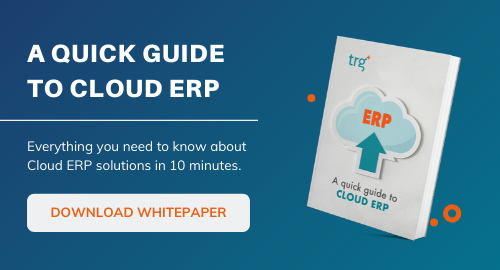In the previous article, we looked at major supply chain challenges faced by several manufacturing sub-verticals during the height of the pandemic.
Will the effects resulting from the pandemic be long-lasting? What role does technology play in helping manufacturing businesses prevent or at least minimise the impact? Let's find out in today's article.

How technology can help mitigate the impacts
Manufacturers are starting to invest more in technology. This seems to be the most feasible option to reduce the pressure of demand. Bruno Pfeiffer, a partner for supply chain and network operations at Deloitte Switzerland, said manufacturers can now use technologies such as digital platforms to predict, plan and share data on their supply chains.
Read more: What is Predictive Maintenance (PdM)? Its Pros and Cons
Software such as Microsoft Cloud for Manufacturing can help companies better integrate real-time data, proactively reduce risk, and better understand the impact of decisions while allowing them to create digital twins for their supply chains to understand the impact of upstream and downstream activities. They can use this data to create contingency plans that automate your risk response.
Manufacturers can also leverage artificial intelligence to assess the risk of suppliers by analysing real-world events. If a secondary supplier drops unexpectedly, manufacturers are notified and can quickly identify alternative suppliers to minimise supply chain disruption.
Researchers in the Manufacturing Analytics group at the Institute for Manufacturing are using artificial intelligence and the Internet of Things to create agent-based systems that make supply chains smarter and more efficient.
Agents can be programmed to use algorithms to share data, predict results, and negotiate with other agents to timely react to changing demands, such as adjusting order quantities and delivery times.
And agents can be added to existing systems. This is known as an "autonomous supply chain." Applying this approach opens the market to everyone, from SMEs to large multinationals.
The use of technology and strategies, such as autonomous supply chains, is going to be vital for manufacturers in the future. Manufacturers must continue to collect and use data to predict, mitigate, and overcome any obstacles in the future.
Blockchain technology is another promising solution for manufacturers due to its fast, distributed, and highly secure network that only authorized network members can access. Implementing blockchain into supply chain sensors can help vendors gain maximum visibility at every production stage.
A blockchain supply chain can help manufacturers record price, date, location, quality, certification, and other important information so that the supply chain can be better managed.
When this information becomes readily available upon request, it will make it easier to track where materials come from, cut down on losses from counterfeit and grey market goods, improve visibility, maintain compliance, and potentially help manufacturers to lead in their respective industries.
The bright side
The massive disruptions on a global scale forced companies to re-evaluate their business strategies and seek suppliers closer to home. For the first time in a long time, manufacturers are focusing on developing advanced supply chain strategies and making them an integral part of a manufacturing business. They are also exploring how digital technologies can help manage supply chain disruptions.
Leveraging currently available data and advanced technologies like artificial intelligence, blockchain, and the Internet of things can allow manufacturers to track their shipments, monitor changes, and make informed decisions in real-time.
The value gained, thanks to better efficiency, is shared across the whole supply chain. Want to learn more about ERP, the supply chain, and cloud-based solutions to optimise costs and business processes? Check out our whitepaper below!
 English
English  Vietnamese
Vietnamese 



